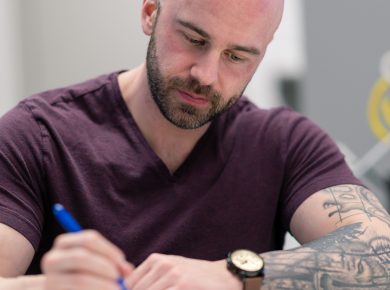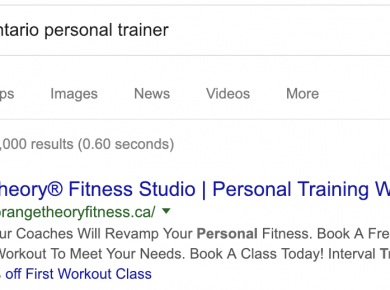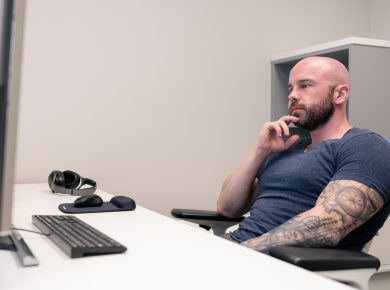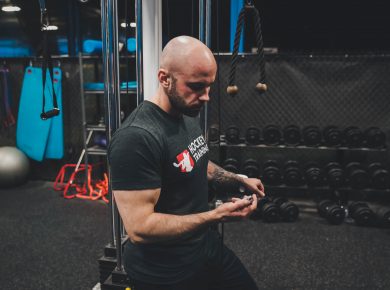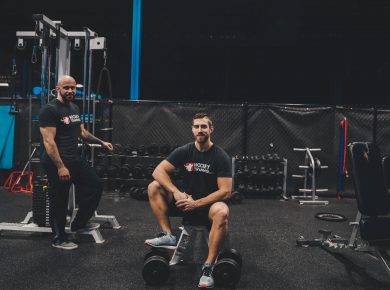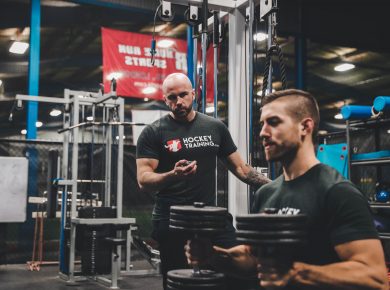“Hey Dan, I’m not getting many clients in the door. Do you think I should lower my prices?”
“Hey Dan, I just launched my eBook and I only got 10 sales – is the price too high?”
“What? I don’t want to charge that much! I don’t want to scare people away”
…The examples could go on and on.
I have been business coaching for people long before Create Freedom came to life, and this is a conversation that almost inevitably comes up at one point or another.
No matter how it is spun, the actions people take when trying to run their businesses so often revolve around the idea that “My clients can’t afford it”
Give me a break.
Reality Math
Let’s say you’re a personal trainer, how much does a personal training session cost with you?
$50, $60, $70, $80, $100?
Or higher?
Odds are that the price of training is reflective of the demographics. Is it reasonable to you that the members of the gym spend at the minimum the cost of a personal training session with you during a dinner or movie date night over the weekend?
Have you looked at your gym parking lot?
See any Lexus, BMW’s, Audi’s, Mercedes, Jaguar’s, or Infiniti’s?
Your members have income and they have disposable income – you’re just thinking too small.
Look, people will only ever allocate resources, financial or otherwise, to things that they believe are valuable to them.
So, if they aren’t buying training from you, it’s not an issue of cost, but rather an issue of value.
You Are What You Charge For
If nothing differentiates you from the millions of other fitness professionals out there, in the mind of your prospective clients, you risk being commoditized.
This means, you have no unique selling advantage, other than price. If you compete on the basis of price, you are destined for a life of disappointment and being broke.
Why?
Because your client’s perceived value of you dictates what they will pay.
Any price is too high for something that has no value. If your services and coaching is average to the point where it can be obtained anywhere, then you are not valuable.
You need to start viewing things in a different way.
“You” Version 2.0
You have to create value of your services that go beyond you “knowing your stuff”
I know you think that’s special, but it’s not. It’s literally your job description.
Nobody walks into a gym and inquiries with a personal trainer because they don’t think you know your stuff. That part is mandatory, and doesn’t make you special at all.
You need to go beyond the textbooks and be client-centered, client-focused, client-driven, and about thirty other “client + insert verb/adjective here”
Let’s take the example of Susan.
Susan is an overstressed, busy mom with multiple responsibilities on a daily basis – both in her professional and personal life.
This woman is going to want not only professionalism in the form of your knowledgeable program design, but escapism in the form of you being a compatible and awesome human.
Consider this analogy.
If you make yourself a coffee at home, you’ll pay about 25 cents for it (depending on what type of store brand coffee you buy).
If you don’t have coffee at the house, you can go down the street to that exact grocer and pay about 50 cents or one dollar for it, even though it’s the same stuff.
Now, if you go to a local trendy coffee joint that offers you a heightened ambiance, fantastic service, and an overall sense of “high class” – you will happily pay anywhere from $2-5 dollars for a cup of coffee.
Why do we do this? Why do we happily pay upwards to 20x the price of an at-home coffee when we go to these places?
It’s because of the experience they provide.
The ambiance effortlessly blended in with the right choice of music, the aroma in the air, and the comfortable sofa you’re sitting on – all provide you that form of escapism.
The greater the experience, the greater the perceived value, the more money your clients will be willing to spend per session. Even if you have an equal or lesser knowledge than your colleagues.
Experience Is Seen Everywhere
You know the name brand Timberland?
Yeah, rhetorical question.
This footwear company was doing very poorly in sales at one point in time. Through a combination of having a lot of balls and trying something new – they decided to raise their prices. Not just a little bit either, they raised them a lot.
What happened?
Sales began to increase to the point where they were outperforming almost all of their competitors. They cemented themselves as a dominant company in the shoe world.
The reason behind all of this is because the increase in price drove up the perceived value of the shoes.
It’s not uncommon in the business world at all to see these tactics work, that is, increasing your price is more effective for selling than decreasing your price. Gibson Guitars is another company that very famously did this with massive success.
Final Words
Many people are nowhere near as price sensitive as you think they are, but everybody is value sensitive.
Besides, would you really want people who are price sensitive to be your primary client base? That’s a nightmare. You would spend more time haggling with them rather than providing them with any form of real experience or escapism.
There’s a good chance their referrals would be crap as well.
Selling products and selling coaching is not for everyone, you need to master in on a demographic that you can connect with on a client-centered level.
When you can create this connection; you have found your demographic, you have found your referral network, you have found your niche, and you have found your salary – all because you bridged the decision-making gap on both value (experience of your client) and outcome (your knowledge to get them results).
Stop charging less and start providing more value.


